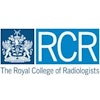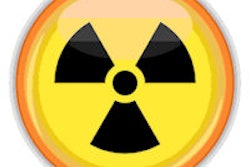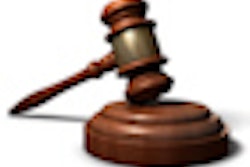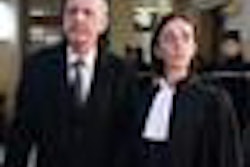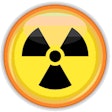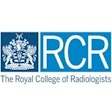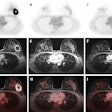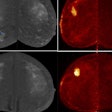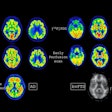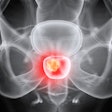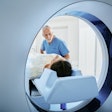
As the shockwaves from the French radiation scandal continue to reverberate, a senior radiologist remains convinced that the medical profession can learn from the tragic episode that led to the deaths of 12 prostate cancer patients and the serious injury of hundreds.
"The lessons are simple," said Dr. Laurent Verzaux, 2012 president of the French Society of Radiology (SFR). "The incorrect calibration of radiotherapy machines at Epinal reflects a lack of respect for procedures, and the miscalculation of radiation dose most probably also stems from the same negligence."
Verzaux emphasized quality control procedures must be in place and backed up with a written or digital paper trail. Exams must be justified, optimized through the ALARA (as low as reasonably achievable) principle, and verified afterward through a checklist to ensure they were carried out correctly, he said.
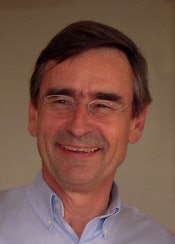 Imaging examinations must be justified and optimized through ALARA, according to Dr. Laurent Verzaux.
Imaging examinations must be justified and optimized through ALARA, according to Dr. Laurent Verzaux.
Three doctors at the hospital in northeastern France were convicted of manslaughter and causing serious injury to patients because of radiation overdoses between 2001 and 2006. The coverage has caused a flurry of contradictory media reports that at times have blurred the distinction between the powerful gamma rays used in radiotherapy cancer treatment and radiation used in diagnostic imaging.
Also unclear is whether the scandal will cause long-term damage to patient confidence in the safety of imaging procedures.
Unaware of the precise details of the case, Verzaux said he could not comment on whether checks by the French Nuclear Safety Authority (Autorité de Sûreté Nucléaire, ASN) had been carried out at Epinal, or if all radiotherapy procedures had been in written format, followed, and checked. According to reports in the French press and the final judgment issued by the court, at least one of the three defendants attempted to cover up mistakes by destroying evidence, once they were aware of the radiation overdoses.
"I don't think that this story has damaged the reputation of daily imaging practice or radiotherapy, although it might have knocked patients' belief in doctors' professionalism," noted Verzaux, a specialist in breast imaging at Le Havre Center. "There has been a lot of communication to the general public on the part of the ASN since this story broke, and I believe that patients can sense that we are very prudent in what imaging exams we choose and why."
He pointed out this prudence predated the Epinal affair by many years, and constituted various national regulations and European standards, as well as the ASN-directed "Movement for Dose Reduction" (Mouvement de reduction de dose, MRD), which focuses each year on bringing down the dose for different subspecialty areas of imaging.
France's radiological community is highly vigilant when it comes to diagnostic radiation, according to Verzaux, who pointed to an electronic guide that will be published this month. The guide targets nonradiologist physicians who order exams, and advises them about how and why they should choose scans. It is an update of the 2005 guide, and will complement the one used by radiologists about good practice in the utilization of exams and dose optimization.
These comments echo those of Gilbert Collard, lawyer for radiotherapist Dr. Michel Aubertel who along with Dr. Jean-François Sztermer and Dr. Joshua Anah, was sentenced to a fixed term of 18 months in prison, with suspended sentences of four years and a lifelong ban on practicing medicine for Aubertel and Sztermer. Anah received a three-year suspended sentence and a five-year ban from practicing medicine for manslaughter and destroying evidence.
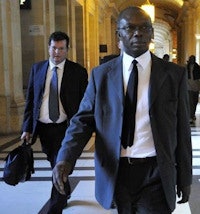 Dr. Joshua Anah received a three-year suspended sentence and a five-year ban from practicing medicine for manslaughter and destroying evidence. Image courtesy of Mehdi Fedouach, Agence France-Presse.
Dr. Joshua Anah received a three-year suspended sentence and a five-year ban from practicing medicine for manslaughter and destroying evidence. Image courtesy of Mehdi Fedouach, Agence France-Presse.
"There was lack of hospital procedure at every step of the way, in documentation, modernization, and in adaptation to safety requirements. It is the whole hospital chain that is implicated and should be condemned in this case," Collard said in a statement last September, when the trial began.
The French medical community is now debating whether the net of blame should be cast wider, beyond just the doctors convicted, to cover a failure of the entire radiation oncology system. It would appear that a further 5,000 patients were over-radiated to varying degrees of between 3.1% and 7.1% between 1987 to 2000 due to "systematic errors of calculation."
During the trial, the jury was told how underestimation of risk, changes and improvisations in technique, insufficient training of operators, and a lack of communication between the three practitioners contributed to the more serious events.
According to published reports, at least 24 patients received a 20% radiation overdose between May 2004 and August 2005 due to erroneous calibration of new radiotherapy machines, while failure to take into account imaging procedures such as "matching" prior to treatment led to final radiation overdoses of between 8% and 10% across 424 other patients between 2001 and 2006.
France could be forgiven for priding itself on its national measures to ensure radiation safety in healthcare. The ASN requires the existence of a "competent person for radiation protection" in each hospital, the qualification of whom must be validated every five years.
In addition, the ASN is free to carry out random spot checks on hospitals to verify that radiation safety procedures are in place and applied in daily practice. However, the fact that the negligence at Epinal was allowed to continue over a five-year period will do little to uphold France's reputation for vigilance, both at home and abroad.


